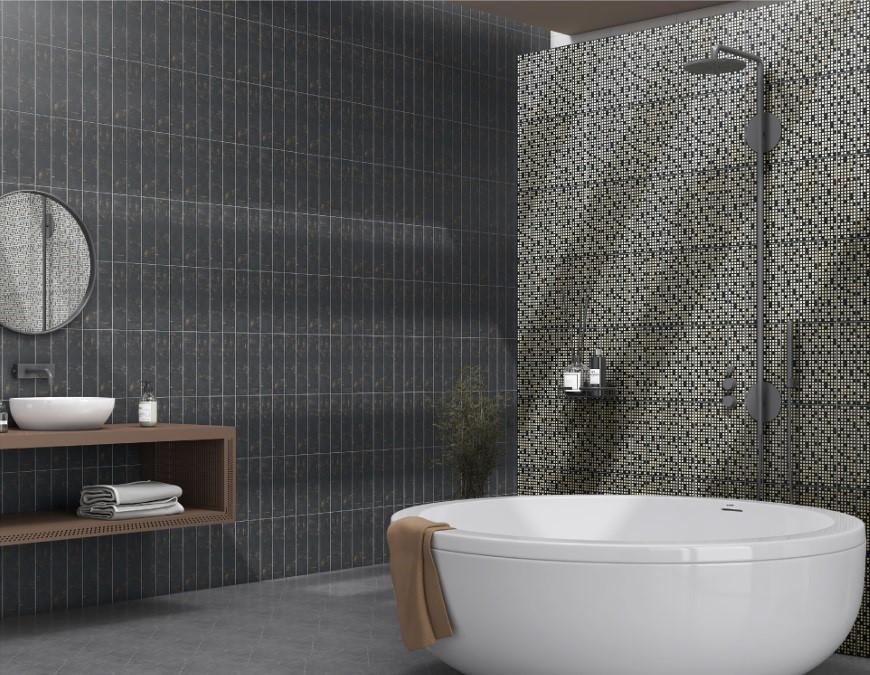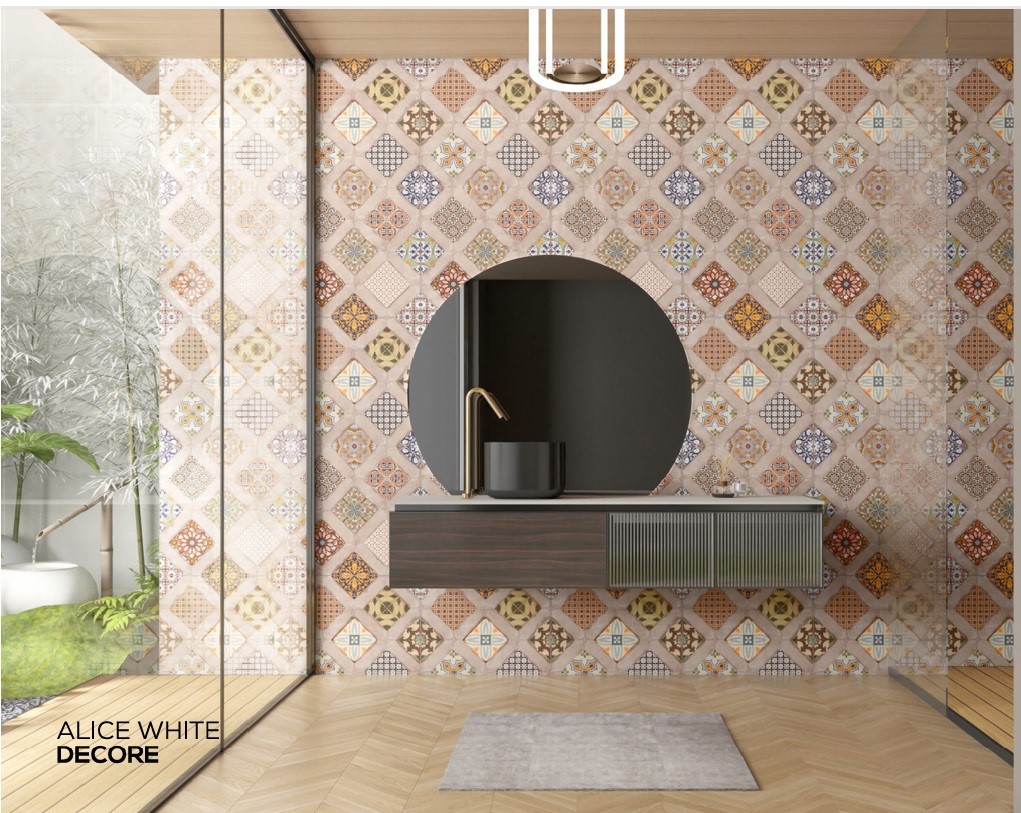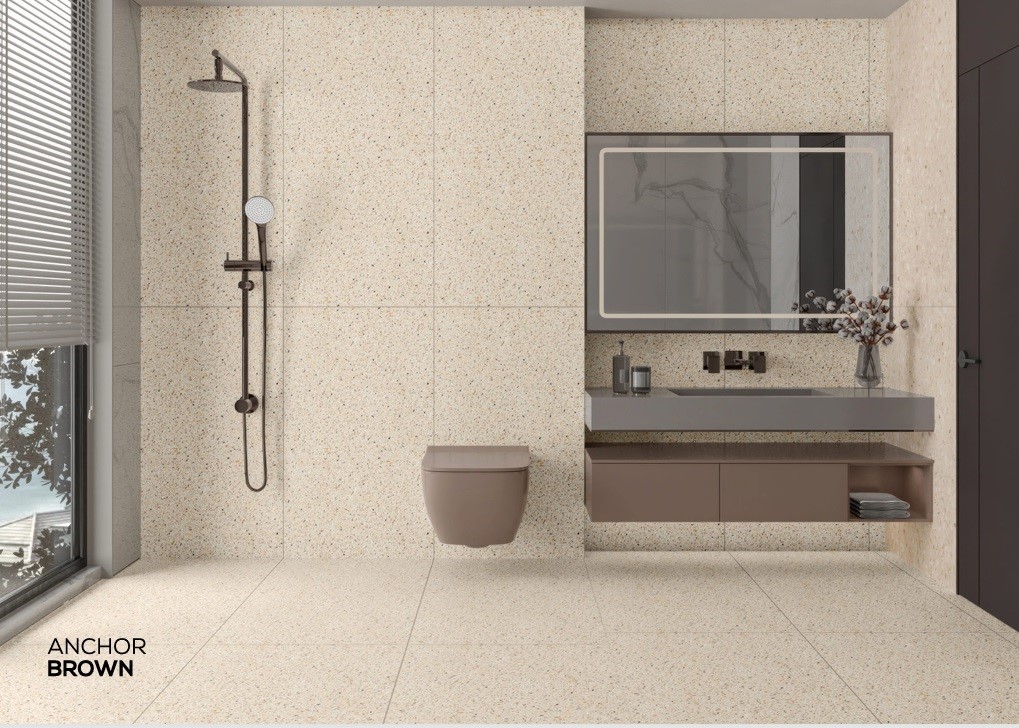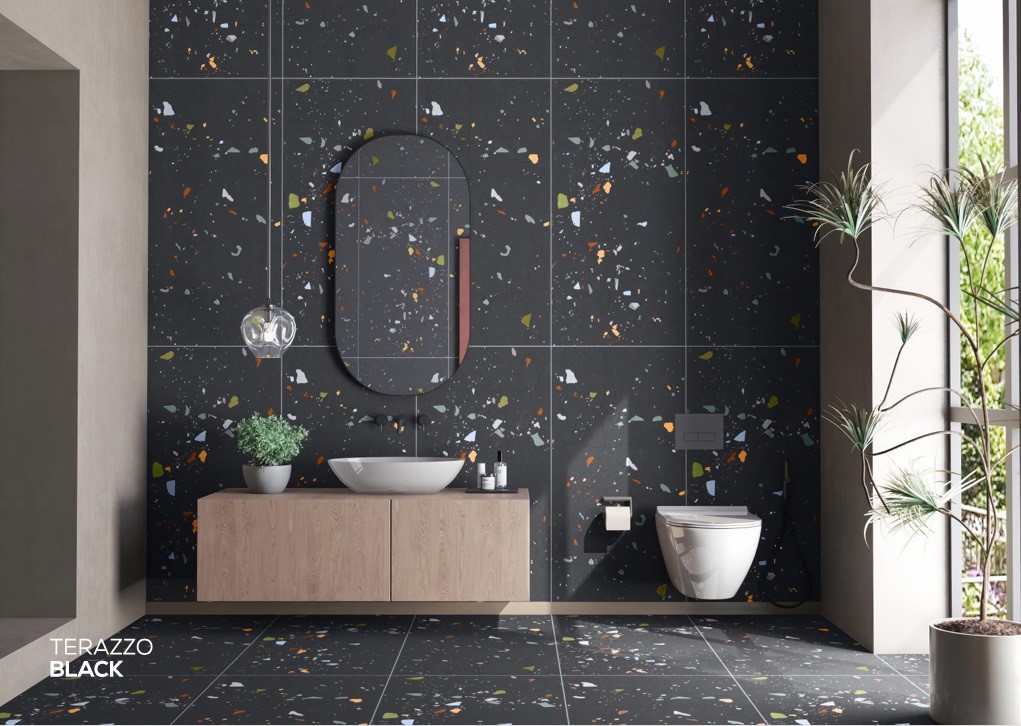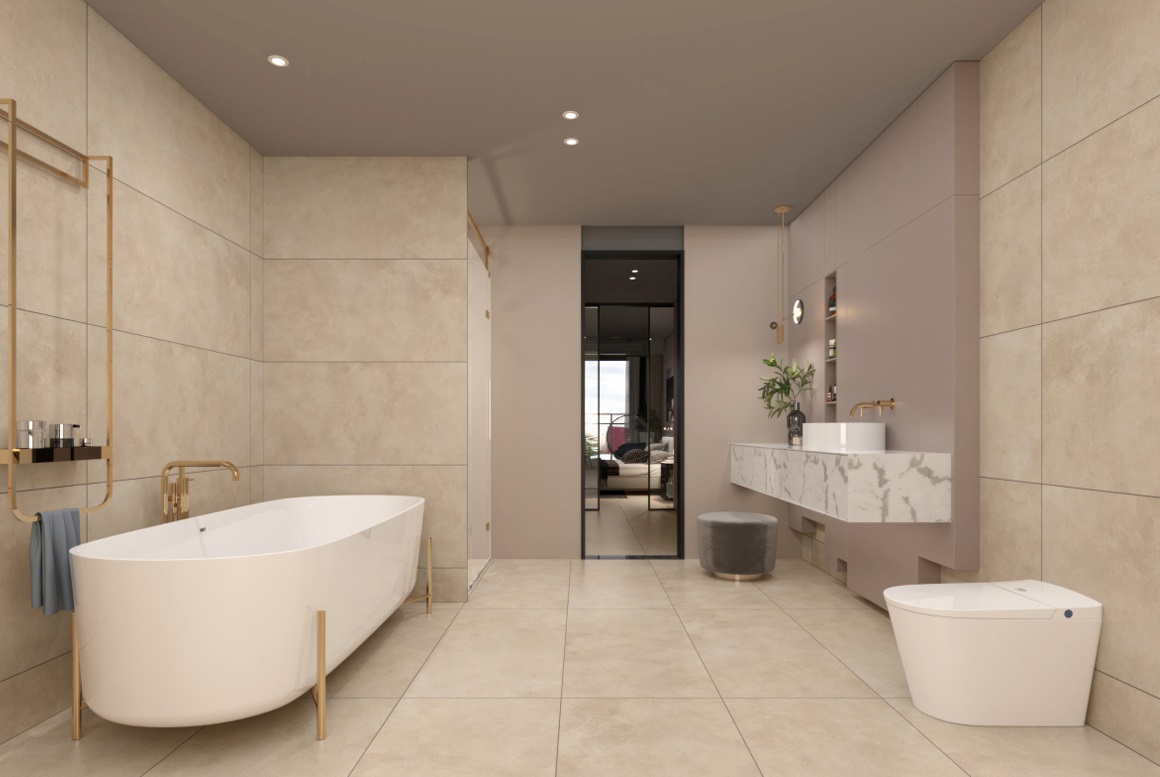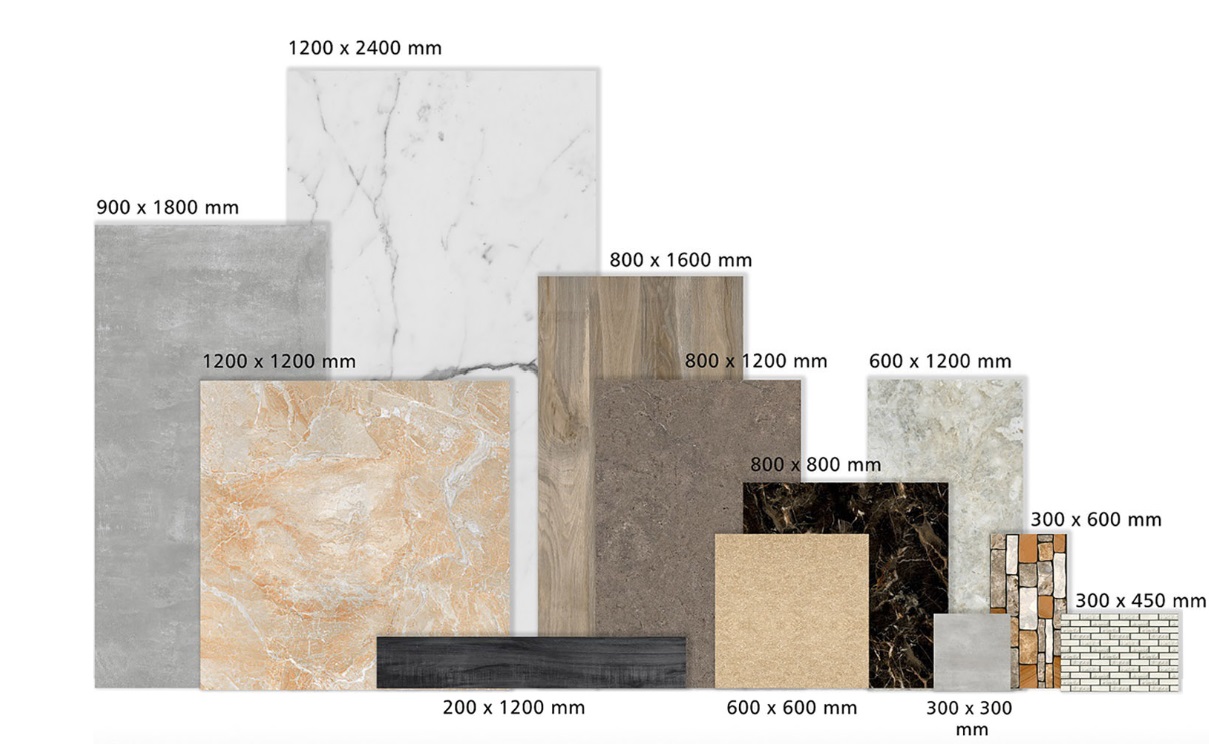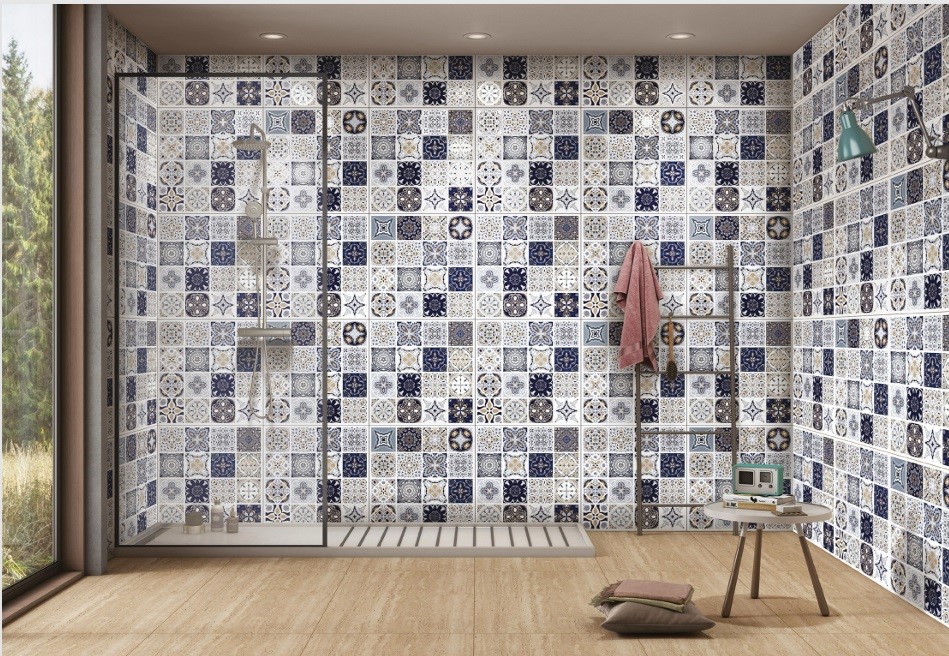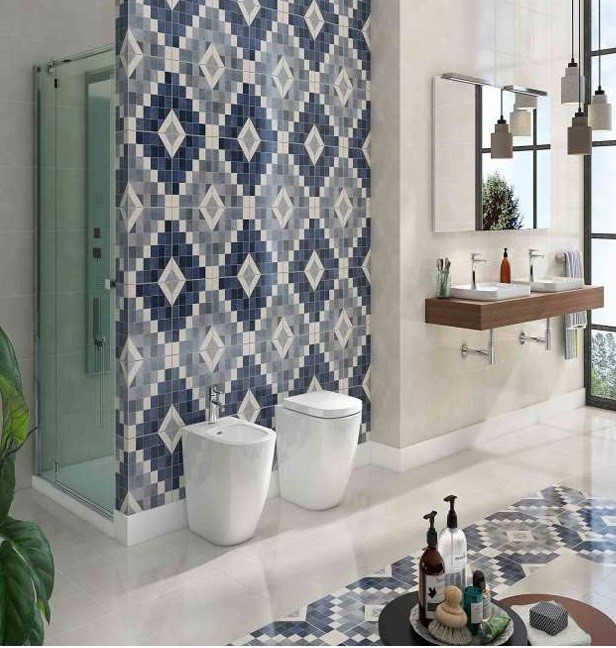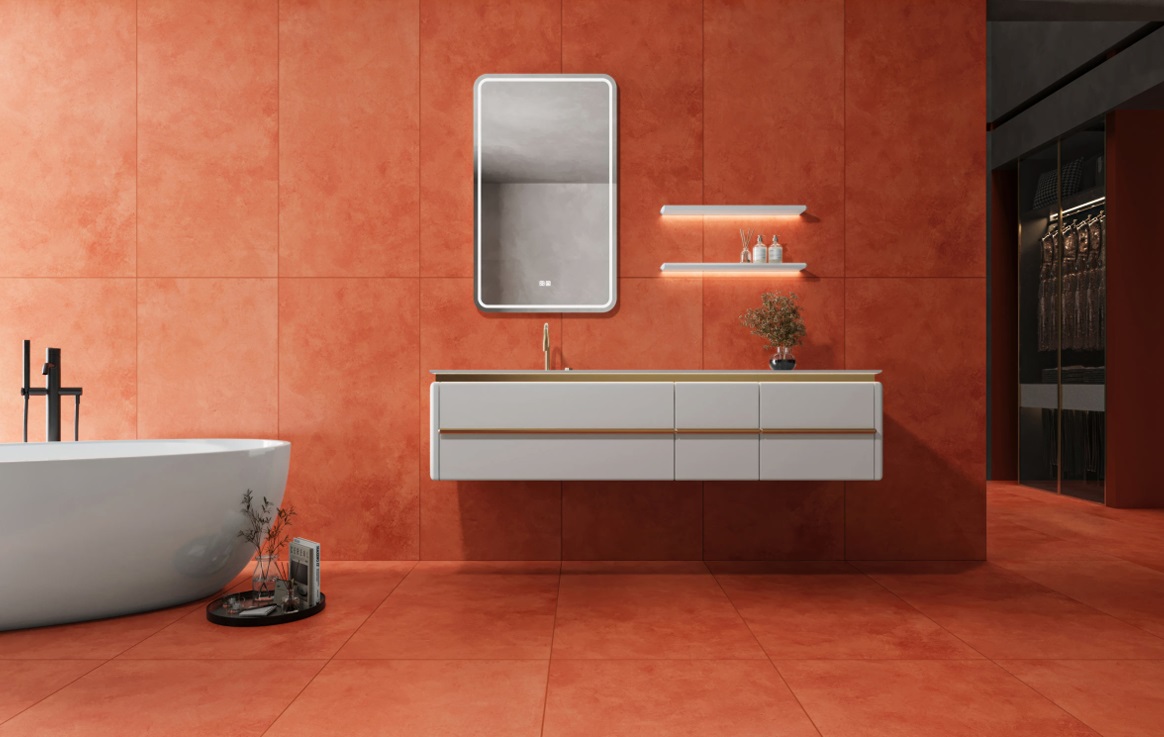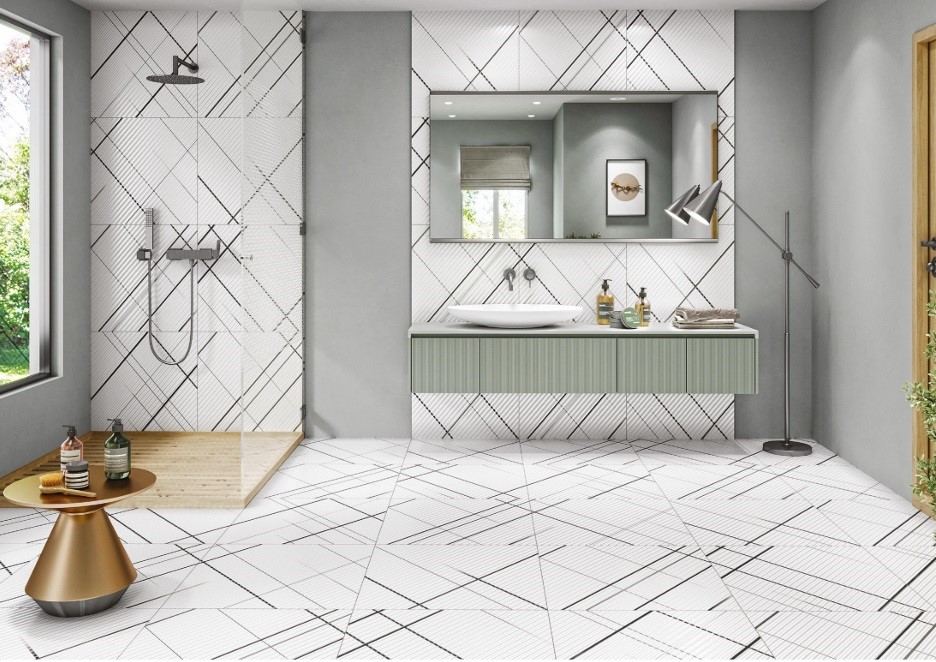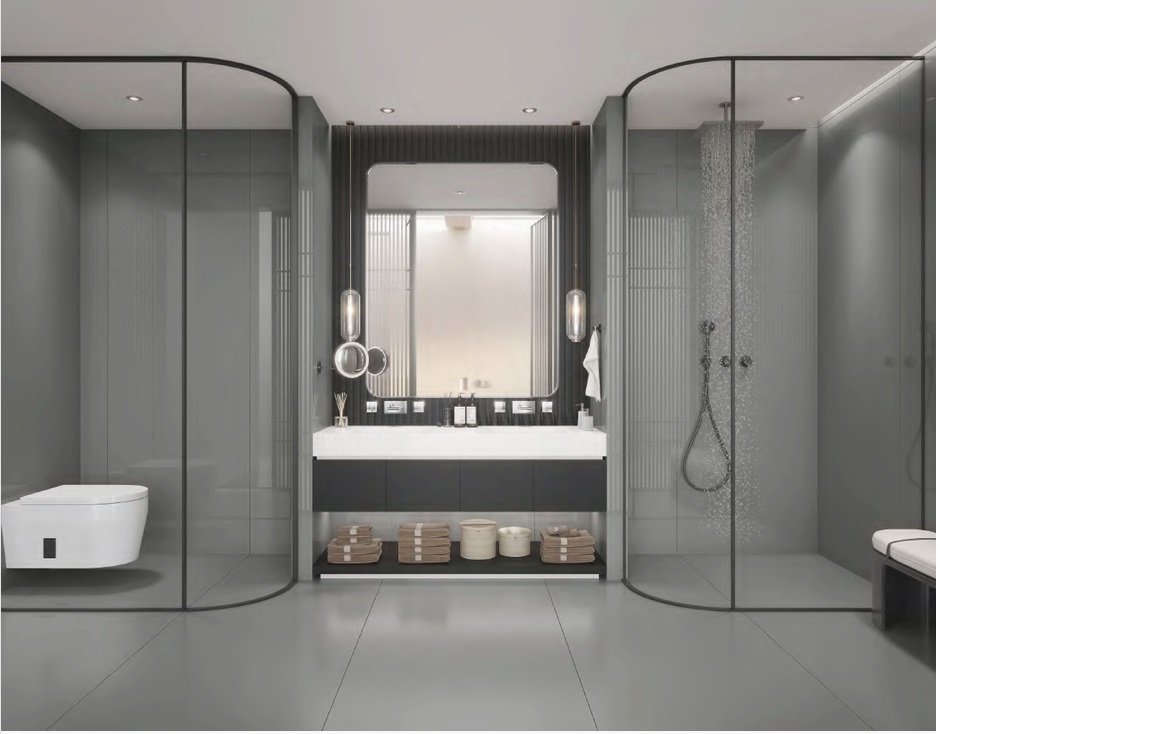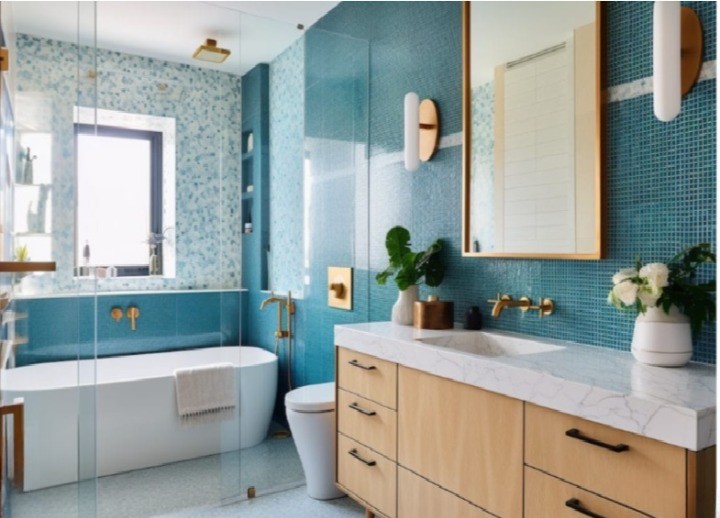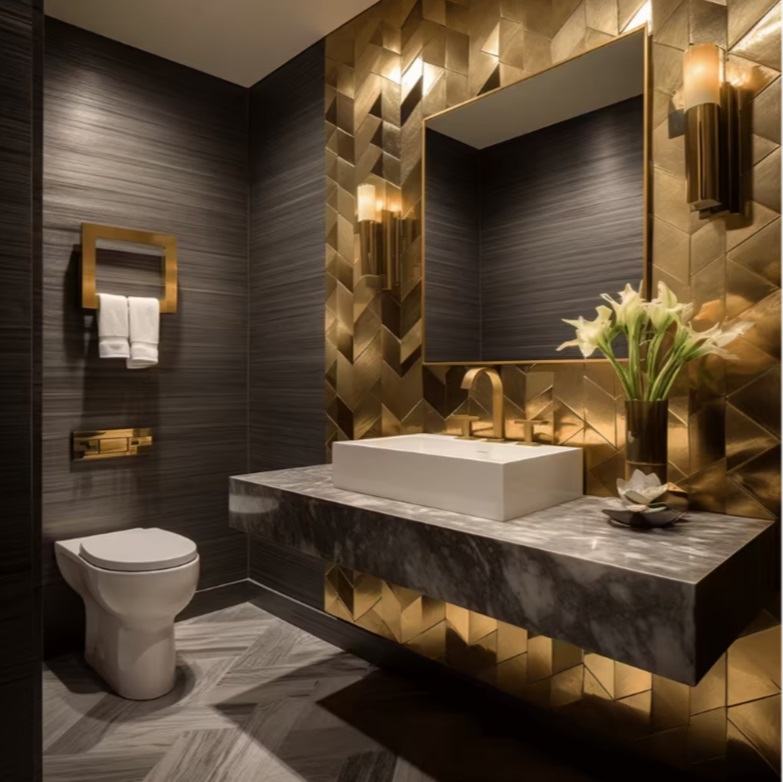Bathroom tiles are specially designed tiles used for covering the floors and walls of bathrooms. These tiles are chosen for their durability, water resistance, ease of cleaning, and aesthetic appeal. Bathroom tiles come in a wide range of colors, patterns, textures, and sizes, allowing for creative designs that can complement various bathroom aesthetics, from modern to traditional.
Key Characteristics of Bathroom Tiles
1) Slip Resistance
2) Ease of Maintenance
3) Protect Against Moisture
4) Increases Property Value
Bathroom tiles play a crucial role in preventing leakage in your home, it acts as a barrier against Moisture. As they are made from materials like ceramic, porcelain, or natural stone, that are inherently water-resistant. When these tiles are placed with proper Tile Adhesive, they form a bond that protects the water from percolating.
The spaces between tiles are filled with grout, which seals the gaps and prevents water from passing through.
So, Yes Bathroom Tiles Prevent leakage in the house.
Laying bathroom tiles is crucial for several reasons
1. Waterproofing and Moisture Protection
2. Durability
3. Hygiene and Cleanliness
4. Aesthetic Appeal
Laying bathroom tiles is a vital step in ensuring that your bathroom is not only beautiful but also functional, safe, and durable. They protect against water damage, enhance hygiene, and offer a wide range of design options that can elevate the look of your bathroom. Properly installed tiles are an investment in the longevity and quality of your home, making them an essential part of bathroom construction and renovation.
Barrier Against Moisture: Bathrooms are constantly exposed to moisture from showers, baths, and sinks. Tiles act as a waterproof barrier, preventing moisture from penetrating the walls, which can lead to mold, mildew, and structural damage.
Protecting the Wall Structure: By covering the walls with tiles, you protect the structural integrity of the bathroom from moisture-related issues such as wood rot or weakening of wall materials. This ensures the longevity of your bathroom and prevents costly repairs down the line.
laying bathroom tiles at the right time during the construction process is crucial for ensuring the durability, effectiveness, and aesthetic appeal of the tiles.
1) After Structural Work is Completed:
Foundation and Framing: The bathroom’s basic structure, including the foundation, framing, and plumbing rough-ins, should be completed before considering tile installation. This ensures that the walls and floors are stable and ready for tiling.
Wall Finishing: Ensure that the bathroom walls are finished with the appropriate materials (such as cement board or waterproof drywall) that are suitable for tiling.
2) After Plumbing and Electrical Work:
Plumbing and Electrical Installations: All plumbing and electrical systems should be installed and tested before laying tiles.
3) Before Final Fixtures and Fittings:
Tiles should be laid before installing fixtures like toilets, sinks, bathtubs, and cabinets.
BathroomTiles are Available in Different Sizes and Thickness
By Size
100mm x 100mm, 200mm x 200mm, 300mm x 300mm, 400mm x 400mm,
600mm x 300mm, 600mm x 600mm, 1200mm x 300mm, 1200mm x 600mm
800mm x 1600mm, 1200mm x 1800mm.
By Thickness
9.5 mm, 10mm, 12mm, 13mm, 15mm, 16mm
The choice between plain and rough tiles for your bathroom depends on your specific needs and preferences:
Safety and Practicality: If slip resistance is a priority, especially in areas prone to getting wet, rough tiles might be the better choice.
Aesthetic Appeal: If you prefer a sleek, modern look and ease of cleaning, plain tiles may be more suitable.
Maintenance: Consider how much time you are willing to spend on cleaning and maintaining your bathroom tiles.
In many cases, a combination of both plain and rough tiles can be used strategically—plain tiles on the walls and rough tiles on the floor or in the shower area—to achieve both aesthetic and practical benefits.
The choice between smaller and larger tiles for a bathroom depends on the specific needs and preferences of the space:
Smaller Tiles: Best for areas where safety is a priority, such as shower floors or other wet areas. They offer greater design flexibility and are easier to install on irregular or curved surfaces.
Larger Tiles: Ideal for creating a modern, spacious look with easier maintenance. They work well in larger bathrooms or on walls where fewer grout lines are desired for aesthetic or practical reasons.
In some cases, a combination of both types of tiles might be the best solution. For example, smaller tiles can be used on the shower floor for slip resistance, while larger tiles can be used on the walls or main bathroom floor to create a sleek, modern look.
The belief that tiles inherently make bathroom floors slippery and dangerous is a common myth.
While it is possible for some types of tiles to be slippery when wet, this does not mean that all tiles are inherently dangerous for bathroom floors. By choosing the right type of tile, finish, and size, and ensuring proper installation and maintenance, tiled bathroom floors can be both beautiful and safe. Modern anti-slip technologies and surface treatments further enhance the safety of tiles, debunking the myth that tiles are unsuitable for bathroom flooring due to slipperiness.
Grouting is a critical component of any tile installation in a bathroom. It not only seals the gaps between tiles, preventing water infiltration and protecting the underlying structure, but it also enhances the aesthetic appeal, safety, and hygiene of the space. Tiles can expand and contract with changes in temperature and humidity, which is common in bathrooms. Grout provides flexibility, allowing for this movement without causing the tiles to crack or become dislodged. Properly applied and maintained grout ensures that bathroom tiles remain securely in place, easy to clean, and visually pleasing for years to come. Skipping the grouting process or doing it incorrectly can lead to significant issues down the road, making it an essential step in bathroom tile installation.
The grouts available in MYK brand are specially designed for preventing water leakages and also prevent algae formation and blackening of tile joints.
